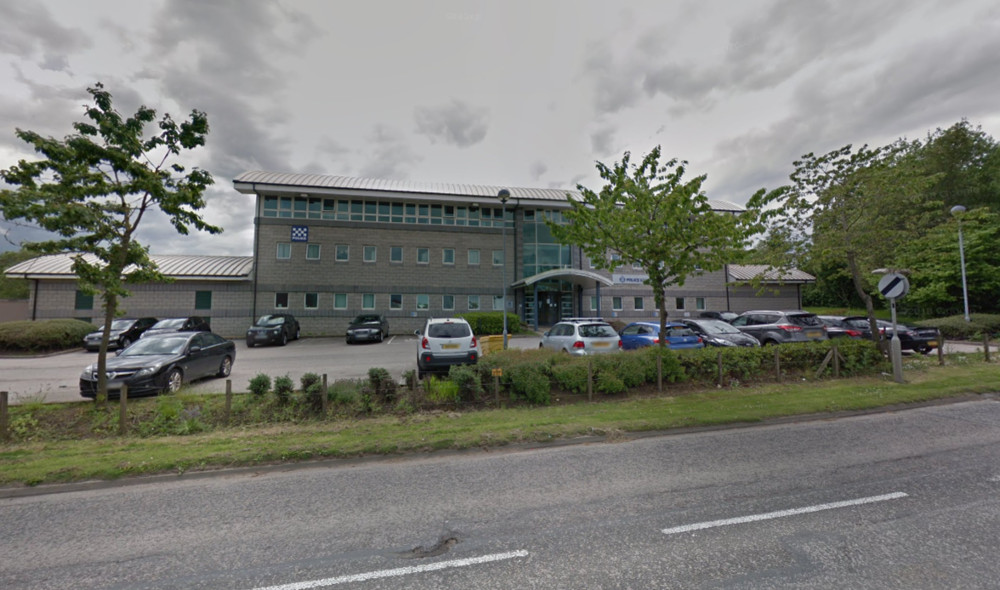Police Scotland lodge plans to build flats
Police Scotland has lodged plans to build flats on Inverurie police station grounds.

Police Scotland's Inverurie office (Picture: Google Street View)
The force wants to build nine two-bedroom flats within a three-storey block inside land by the station on Blackhall Road, The Press and Journal reports.
The proposals form part of Police Scotland’s larger programme to dispose of land across Scotland.
Dundee-based agents Graham+Sibbald put in a request to Aberdeenshire Council last December to get feedback on the potential development of the area.
The council were presented with two options of a nine-flat residential scheme or a commercial drive-through. Again, in February this year, two options were presented to the council, which opted for the residential scheme.
The site does include a variety of aged trees, which are included in the ancient woodland inventory. As they make up part of Inverurie’s Davah Wood, 61 trees would have to be removed to make way for the development if Police Scotland’s plans are approved.
The planning documents state: “The current dense tree coverage detracts the local community from using this site as amenity greenspace. The removal of the poor-quality trees and development of the site for residential use will open up the site and create a more formal landscaped setting. The proposal for a deliverable and effective residential development is considered to be a public benefit which outweighs the retention of the poor-quality tree-stock which provides no current amenity value.”
Developers said that the new flats would be a “visual improvement” and allow for more open space to benefit the larger Inverurie community.
Instead of recognising that the council may be concerned about the proximity of the site to Davah Wood, the agents at Graham+Sibbald instead highlighted the approvals for similar developments nearby.
Kirkwood Home Ltd’s plans for 18 houses were approved last year, while Malcolm Allan Housebuilders succeeded with their plans to build 221 homes in 2013.
If their plans are approved by Aberdeenshire Council, Graham+Sibbald believe that the development could be completed in under three years.








